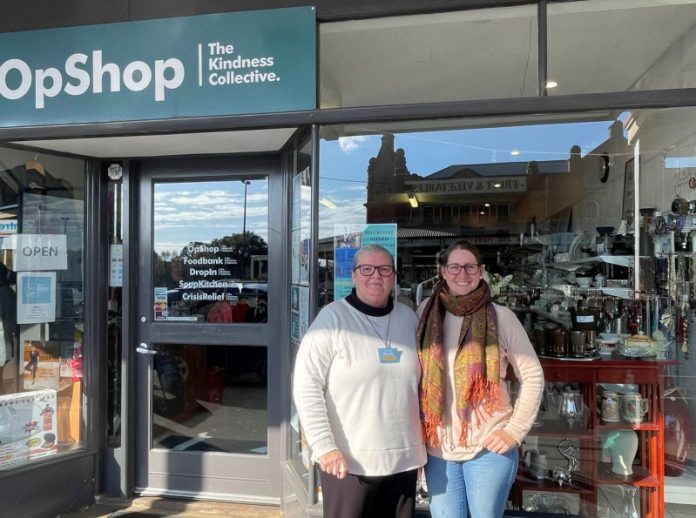Sam Irvine
Foodbanks in the Macedon Ranges are facing unprecedented demand for their services as the cost-of-living crisis worsens, but volunteers say strong community networks are helping to ease the burden.
Volunteering Victoria’s CEO, Thu Trang Tran, said volunteer-led organisations across regional Victoria were facing increasingly difficult circumstances.
“Services are isolated, volunteers and staff are overstretched and fatigued, and access to funds and resources are declining,” she said.
The Kindness Collective, a not-for-profit community-based organisation located in Kyneton, is one of those volunteer organisations under growing pressure due to the cost-of-living crisis.
Its operations manager, Kerryn Wildenburg, said the demand for its services, particularly its food bank and soup kitchen, had increased by 35 per cent in the past financial year.
“At different times over the last few years we’ve seen demand for services fluctuate, but in the past 12 months we’ve seen a consistent increase in demand,” Ms Wildenburg said.
Lyn Margaret of the Gisborne Foodbank said their organisation too had experienced an increase of 35 per cent demand in the past year.
Between rising bills, mortgages and supermarket prices, Ms Wildenburg said something as seemingly small as a rise in the price of milk was enough to see people end up at their food bank.
“For those on government support with a set budget, it’s a lot to absorb,” she said.
Consequentially, Ms Wildenburg said the demographics of people visiting The Kindness Collective were shifting.
“We’re seeing people come here now who never came here before,” she said.
“Typically, it was singles and the elderly, but now we’re seeing a lot of single-parent families and a lot of young students.”
According to the Australian Bureau of Statistics, national volunteer rates were still 19 per cent lower than pre-pandemic levels.
Ms Tran said these organisations were doing much of the community building work in tough economic times but receiving very little support.
She said it was critical that state governments and local councils upscaled their investments in “hard and soft infrastructure” for these organisations.
Like most not-for-profits, The Kindness Collective and Gisborne Foodbank are dependent entirely on their local communities for volunteers and donations.
But Ms Wildenburg said the growing demand meant the organisation couldn’t afford to wait around for government assistance.
Rather, she attributed an expanding network of local not-for-profits as helping to mitigate the impacts of rising demand.
“When we started six years ago, we were the only foodbank in the Macedon Ranges, now there’s five [others],” she said.
The Macedon Ranges is home to five other food banks in Gisborne, Romsey, Trentham, Lancefield and Woodend.
“We helped Gisborne get set up…one of our volunteers, Michelle, helped setup in Lancefield and Romsey,” Ms Wildenburg said.
“At the end of the day, if the community continues to come together and step up, rather than waiting for government assistance, things will improve faster.”
In Gisborne, Ms Margaret said widespread community engagement, involving partnerships with local businesses, was helping to keep the organisation ahead of demand.
“We have a lot of generous people within the community whose donations are helping us keep up with demand, so far,” she said.
Ms Margaret said a positive atmosphere within the community and the organisation was helping to retain a lot of volunteers.
“We have a lot of trust everything will pan out optimistically,” she said.
“We keep a very positive atmosphere, and in turn it’s a positive place to volunteer.”







